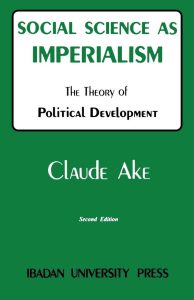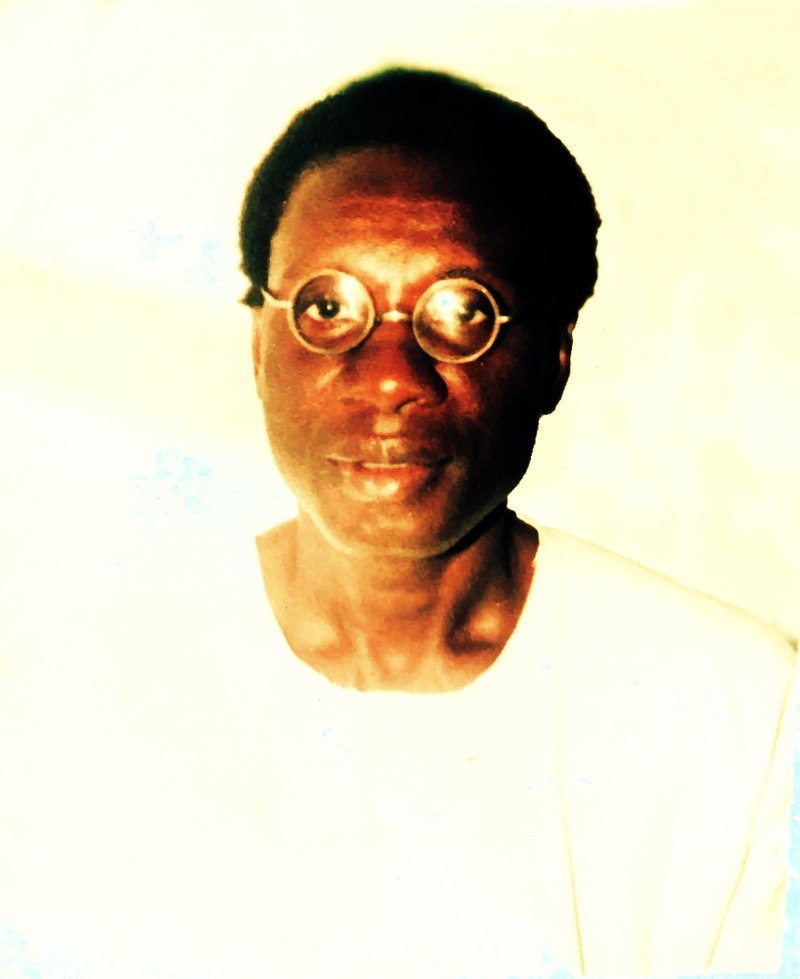By Adagbo Onoja
A flight into academicism on the late Prof Claude Ake at this point in time could be validly charged with insensitivity and irresponsibility to the psychological and material agony of the majority of Nigerians today. But the paradox there is the Ake centrality in how to get out of the agony. There is just so much in Ake’s scholarly interventions with particular reference to the theoretical beacons by which Nigeria can be cured of the malaise threatening it. On the 28th anniversary of his demise yesterday, it is apt to draw attention to the possibility of turning the 30th anniversary of that exit (2 years away from now) into the moment to breathe life into Political Science in Nigeria in tandem with the inconclusive debate on the responsibility of political and other sciences in Nigeria.

A timeless textual marker of Political Science
The dialogic character of meaning compels attention to the question of the responsibility of any science at all in Nigeria, given what have happened in the realm of power since this issue was last touched upon. It falls within the emancipatory logic of knowledge and the (re) production of the social. Two years from now is long enough to mobilise the human and material resources for the moment. It is time to bring the pockets of reflections on the African conundrum into one huge conversation before the world order stabilises again from its current fluidity.
Secondly, previous reflections took place largely in the context of the received wisdom of a binary between interpreting the world and changing it. Now, we know that interpreting the world is the same thing as changing it because the interpretations determine the subject positions which, in turn, determine what is possible or otherwise.
It is very easy to overinvest in a single scholar. I argue here that there can be no overinvestment when it comes to Ake. His level of scholarship is such that, on matters Africa, there can be no getting it wrong in burrowing into and through his works as far as discursive change is concerned.
One, he just had the language. Take Social Science As Imperialism as an example. It has the same sort of parsimoniousness that makes Kenneth Waltz’s Theory of International Politics a big deal in scholarly terms. Both are paradigmatic but in different scholarly and ideological senses. Almost every other of his texts share that ability to frame the snags in a uniquely crisp manner: The Political Economy of Africa; Revolutionary Pressures in Africa; The Feasibility of Democracy in Africa; Democracy and Development in Africa and what have you. Parsimoniousness runs through all these texts and, by implication, succinctness and/or clarity. That is why it used to be the joke in our undergraduate days that it is worse than a prison sentence to be asked to summarise an Ake text. He writes in a manner that every word counts. All that one needs to prove this is to look at the introduction to The Feasibility of Democracy in Africa, for example. In fact, there is a sense in which much of Ake’s use of language shares the same piercing precision with Marx and Engels language use in The Communist Manifesto, the very property which keeps that text irresistible and alive, warts and all. The Communist Manifesto is its language.
Two, Ake is exceptionally categorical and bold. Take a quick inventory of the assertions: his idea that it is not that development in Africa has failed but that it has not even started; his notion of socialism or barbarism as Africa’s choices; his ridiculing of denialist attitude to ethnicity; his contention that liberal democracy is not democracy but a terribly famished version of it and his assertion that it is politics, not economics, that underdevelops Africa. Those who go back to the texts will find more of these sorts of statements.
Three, flowing from point number two above is his achievement of predictive competence. Taking into cognizance that the greatest setback for the social sciences is in the realm of prediction, Ake’s predictive competence can be intriguing. Socialism or barbarism is an exemplar. Africa didn’t take to socialism. Today, the entire continent is in a state of barbarism from the impacts of not just the “accumulation by dispossession” on which neoliberalism runs but also from the brutal local versions of that accumulation process. Each of the categorical assertions cited in number two above contains an element of prediction, all of it at work today.

Ake expands Rodney’s thesis on Africa
Four, Ake is in every sphere of Political Science. We find him in political theory where he first struck with his theory of political integration. Then we encounter him in methodology which could be taken as a subset of political theory anyway since ontology and epistemology cannot be severed. Here, we find his essay “The Scientific Status of Political Science” an illuminating intervention. Imagine an essay published in the early 1970s arguing then that the fact that a problem has not been solved does not mean that it cannot be solved in future. The reflectivist reworking of the concept of science as a narrative in post-Cold War social science bears Ake out gallantly. Political Economy could be said to be his homestead but he was not a stranger in International Relations either. The substantial merger between International Relations and Comparative Politics through Comparative Global Political Theory means that if Ake were still here, he would be at home any and everywhere in Political Science.
Lastly, his texts (certainly not all of them) embody a wave – like quantum approach to measurement which enables him to critique himself. No text brings this out as much as his essay “How Politics Underdevelops Africa”. It is, arguably, his most audacious undertaking, given the way he reverses the materialist interpretation of history that structured his The Political Economy of Africa, thus moving away a bit from Marx while expanding Rodney’s How Europe Underdeveloped Africa towards Lenin. This may not be as farfetched as it may look, considering that the material backwardness of Russia that infuriated Lenin to politicise Marxism can also be found in Ake’s disgust for Africa’s existential non-starter. And it is in “How Politics Underdevelops Africa” that one finds the most concentrated version of that drastic cutting-in into the African elite’s developmental disorientation.
The discursive ecumenism that runs through the essay renders it interpretable as an endorsement of the radical democratic politics paradigm argued by the broader discursive turn. Interestingly, while Ernesto Laclau and Chantal Mouffe’s text which has the most original outline of how this works came out in 1985, Ake’s came out in 1987. None of the two acknowledges each other but the link I want to draw between the two is sustainable. And I argue that both texts are saying that politics can only underdevelop Africa if the African space has been captured by some political value orientation which makes only a particular form of economy, culture and the entire fabric of the social possible. Liberation then can only come from a successful contestation of this political value orientation. That makes central the challenge of pin-pointing a counter-hegemonic narrative; assembling the confluences of victimhood of “accumulation by dispossession”; constructing a logic of equivalence among such entities so that they can think in terms of a ‘collective will’ and then embarking on the ‘war of position’ that will eventually unsettle hegemony.
This is the political in Ake’s notion of politics rather than the economy functioning as determinant of underdevelopment of Africa and it is a unique cutting-in for a continent lost a lot in neo-Marxist modernism. Today, embracing the articulatory practice approach which flows from a re-engagement with Gramsci in the wake of Thatcherism and the ascendancy of neoliberal fairy tale across the West is strategic. On the face of it, radical democratic politics shares a lot with liberal democratic politics but it is a theoretical manifesto for socialist politics in the age in which the ontological over – privileging of the working class needs to give way to a more pluralistic ‘historic block’ that can undercut neoliberal modernity.
Thus in Ake, Africa finds the intellectual voice to re-engage with towards enacting a new becoming. It requires training thinkers and cadres or tacticians and fieldworkers and a lot of organising but it hardly fails in undercutting all the instruments the other side uses to overwhelm the political space – money, obsequious surrogates, thugs and rigging. Above all, it is much easier to accomplish than the Jacobinist operation called the revolution, more so that a revolution without an in-built democratic control mechanism is already lost.
Starting with the Nigerian soil before it goes continental, it is over to the Nigerian Political Science Association (NPSA); ASUU; CDD; the Nigerian Civil Society Situation Room; the NBA and NMA if they are still there in the sense in which they were in the 1980s; some of the informed politicians; the clerical establishment; the media and all other such confluences.
It bears apologising that one is not in that position to reference some of the contentions this piece pushes under the condition in which this has been drafted but I am not sure one has to quote profusely from his works to substantiate most of the claims. In any case, the whole point here is reducible to the argument that Africa cannot overinvest in an Ake!




























